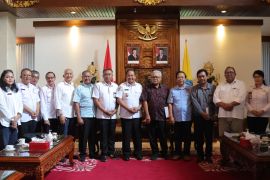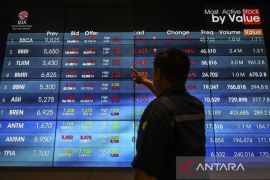Jakarta (Antara Bali) - PT Pertamina said it will reduce its imports of Premium gasoline by 30 percent or around 91,000 barrels per day after the operation of two processing mills soon in the country.
Vice President Corporate Communication of the state-oil and gas company Wianda Pusponegoro referred to the Trans Pacific Petrochemical Indotama (TPPI) in Tuban, East Java and the unit of "residual fluid catalytic cracking" (RFCC) of the Cilacap oil refinery in Central Java.
"The import cut will save around US$1.99 billion a year," Rianda said here on Wednesday.
Currently the domestic consumption of Premium gasoline is around Rp29.5 kiloliters of which 17.1 million kiloliters per year or 9 million barrels per month are imported .
She said from the operation of the two mills, Pertamina could have an additional production of 91,000 barrels of Premium gasoline per day including 61,000 barrels from TPPI and 30,000 barrels from RFCC of Cilacap.
She said in early October, the TPPI mill, which has long been idle, is expected to resume operation to produce 20,000 barrels of Premium gasoline per day.
The production would rise to 61,000 barrels per day or 22.27 million barrels per year when it operates at full capacity.
"The production is equivalent to around 20 percent of imports made so far," she added.
Meanwhile, the RFCC unit of the Cilacap oil refinery of Pertamina is now in the final phase of preparation toward commissioning.
The Cilacap RFCC would come on line not later than in the second week of October, Wianda said.
"Based on the final check , the RFCC unit is 100 percent ready for commercial operation . It is expected to be officially commissioned in the second week of October," she said.
The operation of the RFCC unit will save imports of 30,000 barrels of Premium gasoline per day or 10.95 million barrels per year equivalent to 10 percent of imports made so far.
"With the operation of the two facilities , Pertamina would be able to cut its imports by 91,000 barrels of Premium gasoline per day or 33.21 million barrels per year worth around US$1.99 billion a year assuming that a barrel is priced at US$60," she said. (WDY)









